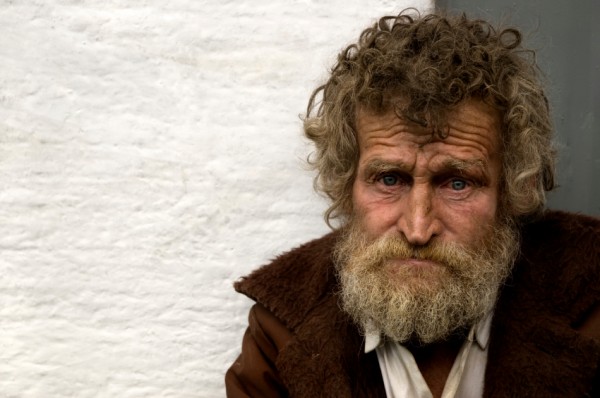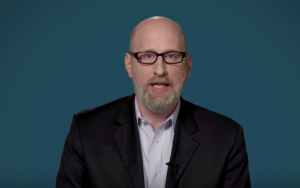Cooking attracts roaches. Nobody realizes that. I’ve spent a lot of hours impaling roach bodies and leaving them out on toothpick pikes to discourage others from entering. It doesn’t work, but is amusing.
And:
I make a lot of poor financial decisions. None of them matter, in the long term. I will never not be poor, so what does it matter if I don’t pay a thing and a half this week instead of just one thing? It’s not like the sacrifice will result in improved circumstances; the thing holding me back isn’t that I blow five bucks at Wendy’s. It’s that now that I have proven that I am a Poor Person that is all that I am or ever will be.
And:
You have to understand that we know that we will never not feel tired. We will never feel hopeful. We will never get a vacation. Ever. We know that the very act of being poor guarantees that we will never not be poor. It doesn’t give us much reason to improve ourselves. We don’t apply for jobs because we know we can’t afford to look nice enough to hold them. I would make a super legal secretary, but I’ve been turned down more than once because I “don’t fit the image of the firm,” which is a nice way of saying “gtfo, pov.” I am good enough to cook the food, hidden away in the kitchen, but my boss won’t make me a server because I don’t “fit the corporate image.”
The response was beyond overwhelming. Huffpo put the essay on its cover, and — by Ms. Tirado’s account — the post has likely been viewed more than 4 million times. She even started a gofundme page and raised more than $62,000. In short, she struck a nerve.
But is her story true? Well, apparently not.
Over at the Houston Press, Angelica Leicht discovered that Ms. Tirado is actually a private-school-educated Democratic activist. Here’s the truth:
The real Linda owns a home, thanks to some pretty generous parents. Her LinkedIn profile states she’s been a freelance writer and political consultant since 2010, and has worked in politics since 2004, a claim backed by 27 decent connections.
She’s married to a Marine, has met President Obama while interning for a politician (who obviously wasn’t disgusted by those rotten teeth), and has plenty of time to visit Las Vegas on vacation. And blog about her privileged life on WordPress.
She speaks both German and Dutch, and has a well-rounded political blog that ended in 2011. It’s also a blog where she quite plainly references being paid to win races.
In response to questions, Ms. Tirado came clean (sort of). This little clarification is tucked within her gofundme page:
And that is the answer to the question many of you have asked. How is it that someone with such clarity and evocation has any right to assert that they are poor? It is likely untrue. Well, it is and it isn’t. You have to understand that the piece you read was taken out of context, that I never meant to say that all of these things were happening to me right now, or that I was still quite so abject. I am not. I am reasonably normally lower working class. I am exhausted and poor and can’t make all my bills all the time but I reconciled with my parents when I got pregnant for the sake of the kids and I have family resources. I can always make the amount of money I need in a month, it’s just that it doesn’t always match the billing cycles.
Why does this matter? It matters because the stories we tell about poverty are critical for our understanding of poverty. Generations of social science (and trillions of War on Poverty dollars) demonstrate that in the battle between terrible decisions and welfare, terrible decisions will win virtually every time.
Wedded to the welfare state, many on the left have now turned to justifying bad acts to not just preserve the status quo but also (presumably) to prevent jaded Americans from turning their backs on the poor. Justification can be poignant and (seemingly) personal, like Ms. Tirado’s essay, or pseudo-scientific, like this Atlantic piece describing the IQ burden of poverty.
One reason why the Left strips moral agency from people who are baby-daddies of multiple kids from multiple moms, who abuse drugs, who commit petty crimes, who drop out of school, etc. is they’ve lost an understanding of man’s fallen nature and a true theology of service. They fear that if the poor aren’t seen as “deserving,” then no one will help.
Yet this fundamentally misunderstands the historical and theological justification for our culture’s concern for the poor. We don’t serve and strive to help the poor because they’re victims of circumstance but because such service echoes the love that Christ showed for us — dying for us when we were utterly, completely “undeserving.” No one receives our help because they “deserve” it. Did we deserve Christ’s sacrifice?
No, we serve because we love Christ and seek to imitate Him and follow His commands.
But it has to be the right kind of service, one that recognizes that man is fallen and that people living in desperate circumstances are quite often morally responsible for their plight. Our service has to recognize the limits of our ability to impact and influence the human heart. Terrible decision-makers don’t suddenly become wise when given food stamps or disability checks. In fact, these very acts of public welfare can often reinforce the decisions that led to the need for charity. One need only read Kevin Williamson’s excellent cover story in the latest edition of National Review to understand the baleful effects of “the draw” on an entire culture.
Love and serve the poor? Yes. Victimize them and strip them of moral agency? Never.
UPDATE: Find out how the HuffPo responded here. (Hint: they didn’t apologize.)
Read more on the Patheos Faith and Family Channel and follow David on Twitter.










